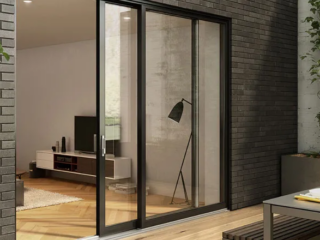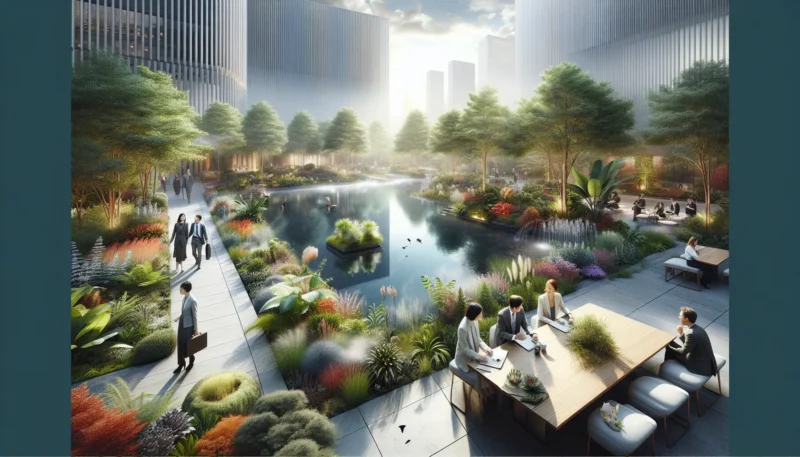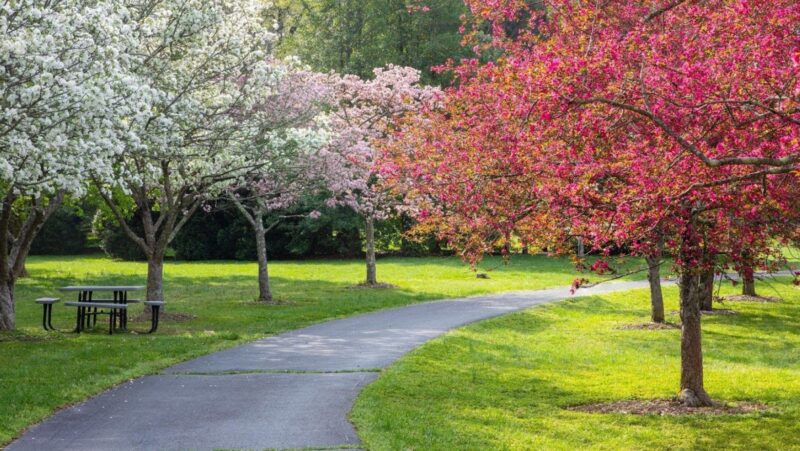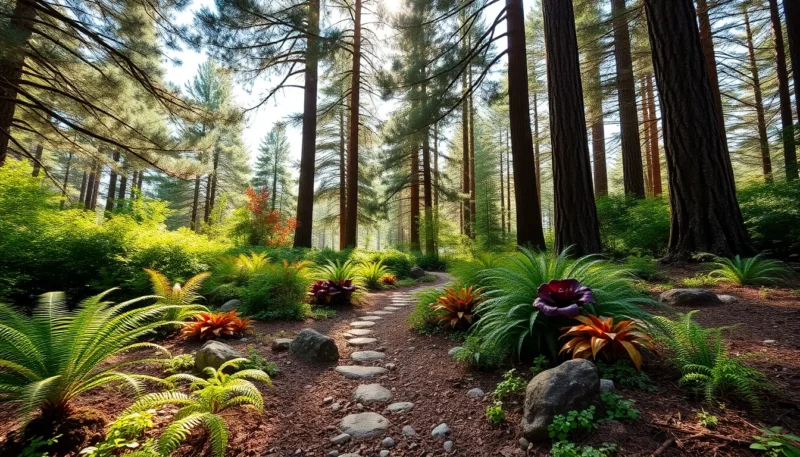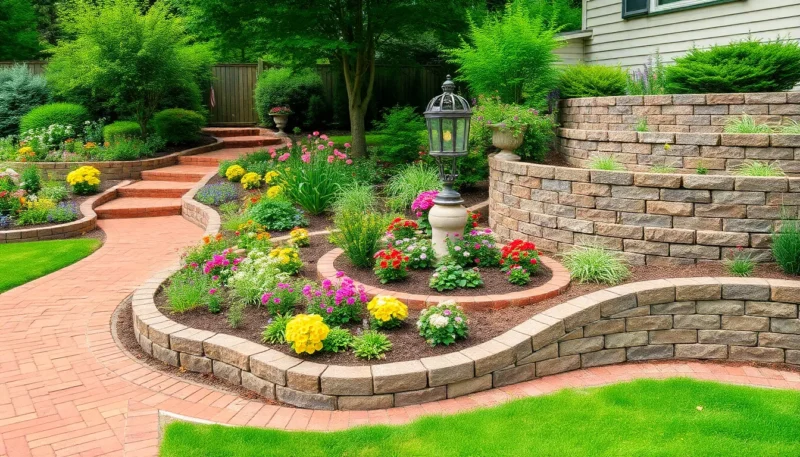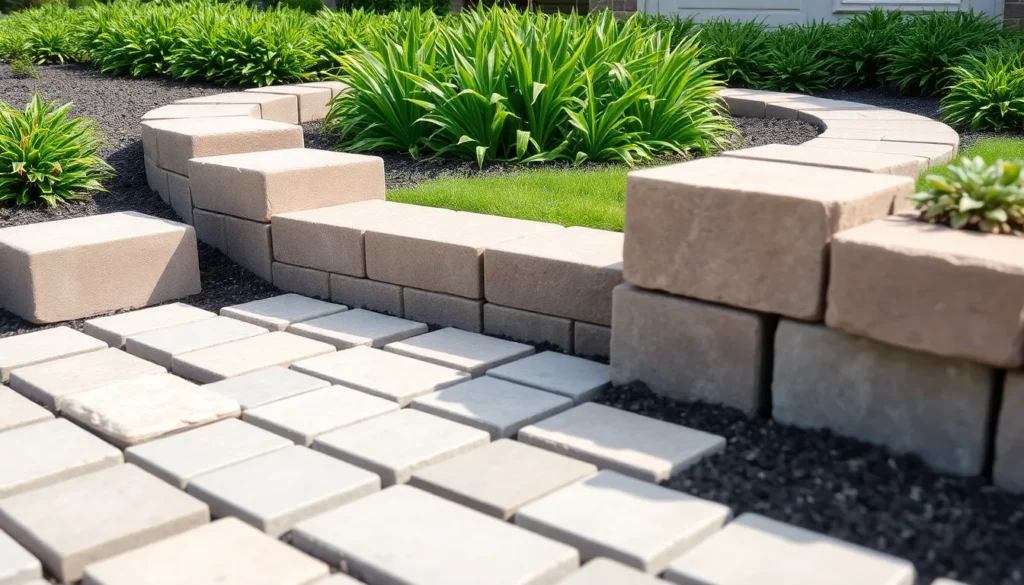
When it comes to transforming outdoor spaces, landscaping blocks are the unsung heroes of the garden world. They’re like the Swiss Army knife of landscaping—versatile, reliable, and ready to tackle any project, whether it’s building a stunning retaining wall or creating a charming pathway that even the neighbors will envy.
Landscaping Block
Landscaping blocks consist of durable materials, making them ideal for various outdoor projects. These blocks often serve structural and aesthetic purposes, contributing to both functionality and beauty in outdoor spaces. They typically come in concrete, stone, or brick forms, each offering distinctive benefits and appearances.
Constructing retaining walls is one popular use for landscaping blocks. Such walls provide support to soil, prevent erosion, and define garden areas. Specific types of blocks, like interlocking variants, enhance stability while simplifying installation.
Creating pathways is another common application. Landscaping blocks facilitate elegant walkways and patio spaces, enhancing connectivity in gardens. Designers often choose different shapes and colors to complement surrounding landscapes.
Incorporating landscaping blocks into designs offers flexibility for personalization. Options like textured finishes or unique patterns allow for creative expression while building outdoor spaces. Additionally, these blocks function well with various substrates and plant materials.
Landscaping blocks are also sustainable solutions. Many blocks contain recycled materials, which promotes eco-friendly practices. Installation methods vary but typically involve a simple leveling of the ground and stacking blocks to desired height.
Variety ensures that landscaping blocks cater to numerous styles and requirements. From modern to rustic aesthetics, they adapt seamlessly to any design scheme. These blocks are reliable tools for any landscaping project, providing support and enhancing visual appeal.
Types Of Landscaping Blocks
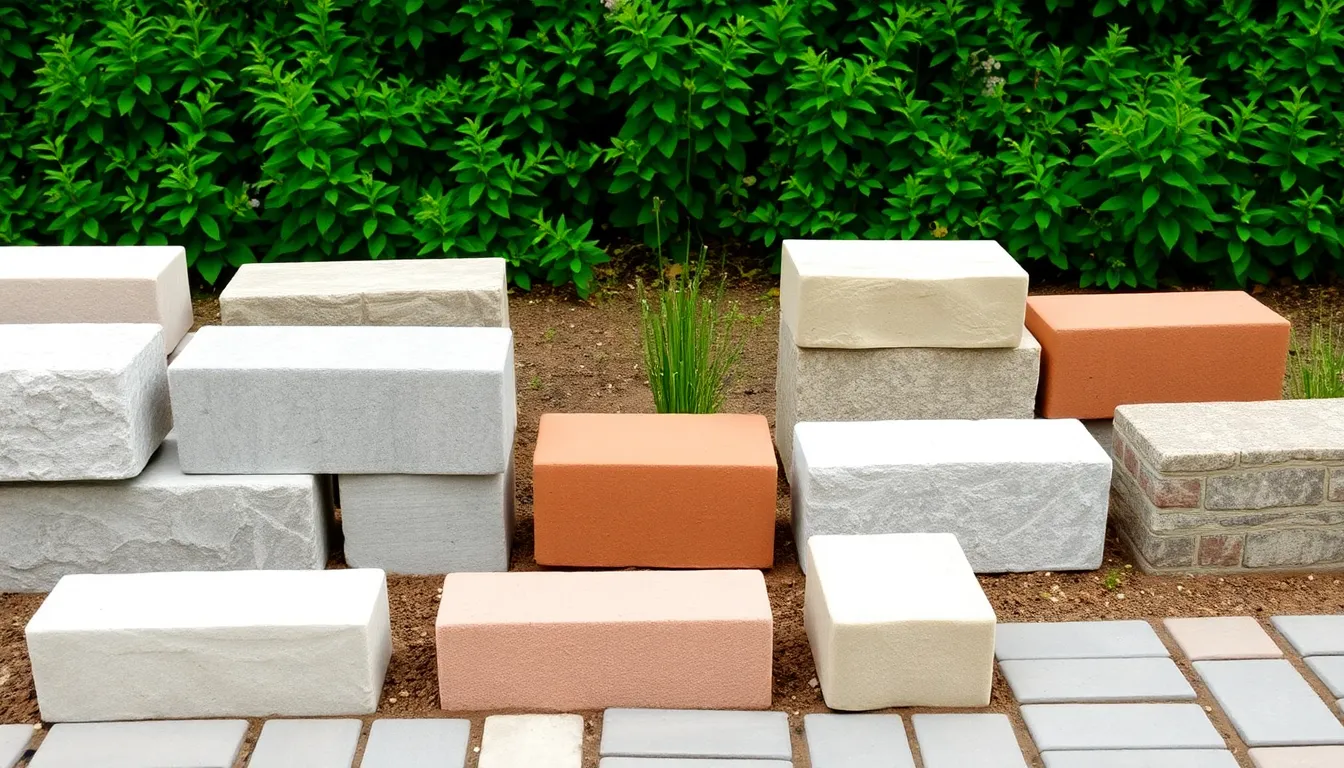
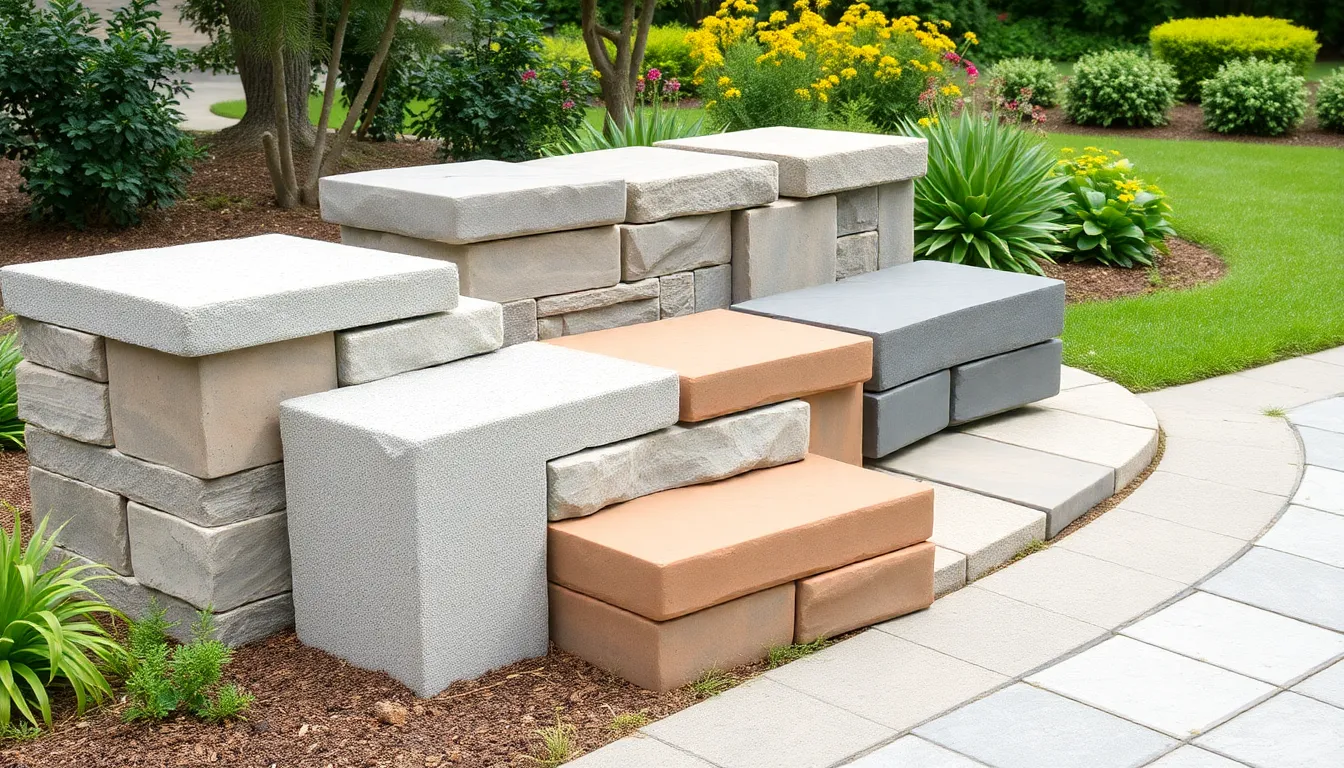
Landscaping blocks come in various types, each offering unique benefits and uses for outdoor projects. Understanding the differences helps in choosing the right materials for specific tasks.
Concrete Blocks
Concrete blocks are widely used for their strength and versatility. Known for durability, they withstand harsh weather and offer excellent support for retaining walls. Various sizes and shapes provide flexibility in design. Many homeowners appreciate their affordability, making them a popular choice for budget-conscious projects. Surface textures can vary, allowing for aesthetic customization. Easy installation aids in quick project completion.
Natural Stone Blocks
Natural stone blocks bring a unique beauty to landscaping. Each block features distinct colors and textures, enhancing visual appeal. They blend seamlessly with surrounding landscapes and provide an organic feel. Their durability ensures longevity, making them suitable for outdoor settings. Natural stones require careful selection based on local availability, impacting project costs. The variety in stone types, such as granite and limestone, allows for diverse landscaping styles.
Pavers
Pavers are another popular choice for creating pathways and patios. Available in different materials such as concrete, brick, and stone, they offer numerous design options. Many pavers interlock for enhanced stability, simplifying installation. Colors and shapes vary, enabling creative patterns in outdoor spaces. Their versatility makes them suitable for both functional and decorative purposes. Pavers withstand heavy foot traffic, making them ideal for high-use areas.
Benefits Of Using Landscaping Blocks
Landscaping blocks offer several significant advantages that enhance outdoor spaces effectively.
Durability
Durability stands out as a primary benefit. Concrete and stone blocks resist weather elements, ensuring long-lasting performance. Many blocks maintain structural integrity against erosion and heavy loads. They withstand temperature changes, preventing cracks or damage over time. This strength reduces maintenance costs, making them a smart investment for homeowners. Choosing quality blocks ensures reliability, contributing to a sturdy landscape.
Aesthetic Appeal
Aesthetic appeal is crucial when selecting landscaping materials. Various shapes, colors, and textures allow customization that complements any outdoor design. Natural stone blocks provide unique looks, enhancing visual interest in gardens and patios. Textured finishes can create an inviting atmosphere, aligning with individual preferences. Elegant pathways and stylish retaining walls built from these blocks add sophistication. Homeowners appreciate how landscaping blocks elevate the overall beauty of their spaces.
Versatility
Versatility remains evident in numerous landscaping applications. These blocks adapt well, serving multiple functions beyond retaining walls. Pathways, garden borders, and fire pits are easily constructed with them. Projects range from functional to decorative, showcasing individual creativity. Interlocking features simplify installation, permitting homeowners to DIY or engage professionals. The abundance of options allows for designs that fit modern or rustic styles seamlessly. Landscaping blocks thus cater to every need and project requirement, amplifying their appeal.
How To Choose The Right Landscaping Block
Selecting the appropriate landscaping block involves careful consideration of project requirements and materials. Understanding both elements greatly influences the success of outdoor designs.
Consider Your Project
First, assess the specific requirements of your landscaping project. Define the intended use of the blocks, whether for retaining walls, pathways, or decorative accents. Analyze the terrain and climate, as these factors impact material selection and installation techniques. Evaluating size and weight is crucial; heavier, larger blocks suit retaining walls, while smaller units work well for patios or garden borders. Taking into account visual aesthetics also enhances project design. Choosing blocks that complement existing structures or landscaping elements creates a cohesive look.
Evaluate Material Options
Assessing material options is vital for achieving project longevity and aesthetic appeal. Concrete landscaping blocks offer affordability and durability, making them an excellent choice for various installations. Natural stone provides unique textures and colors but often comes at a higher cost. Pavers, made from multiple materials, excel in creating stylish pathways and patios, ensuring stability and aesthetic variety. Weighing the pros and cons of each material type determines the best fit for specific needs and preferences. Selecting recycled materials supports sustainability while improving environmental impact, making them a responsible choice in modern landscaping.
Conclusion
Landscaping blocks are essential tools for anyone looking to enhance their outdoor spaces. Their durability and aesthetic versatility make them ideal for a range of projects from retaining walls to elegant pathways. Choosing the right type of block can significantly impact both functionality and visual appeal.
With options available in various materials and styles, it’s easy to find the perfect match for any landscape design. By considering factors such as intended use and environmental sustainability, individuals can make informed decisions that not only beautify their surroundings but also contribute to long-lasting outdoor structures. Investing in quality landscaping blocks ensures a successful transformation of any outdoor area.

